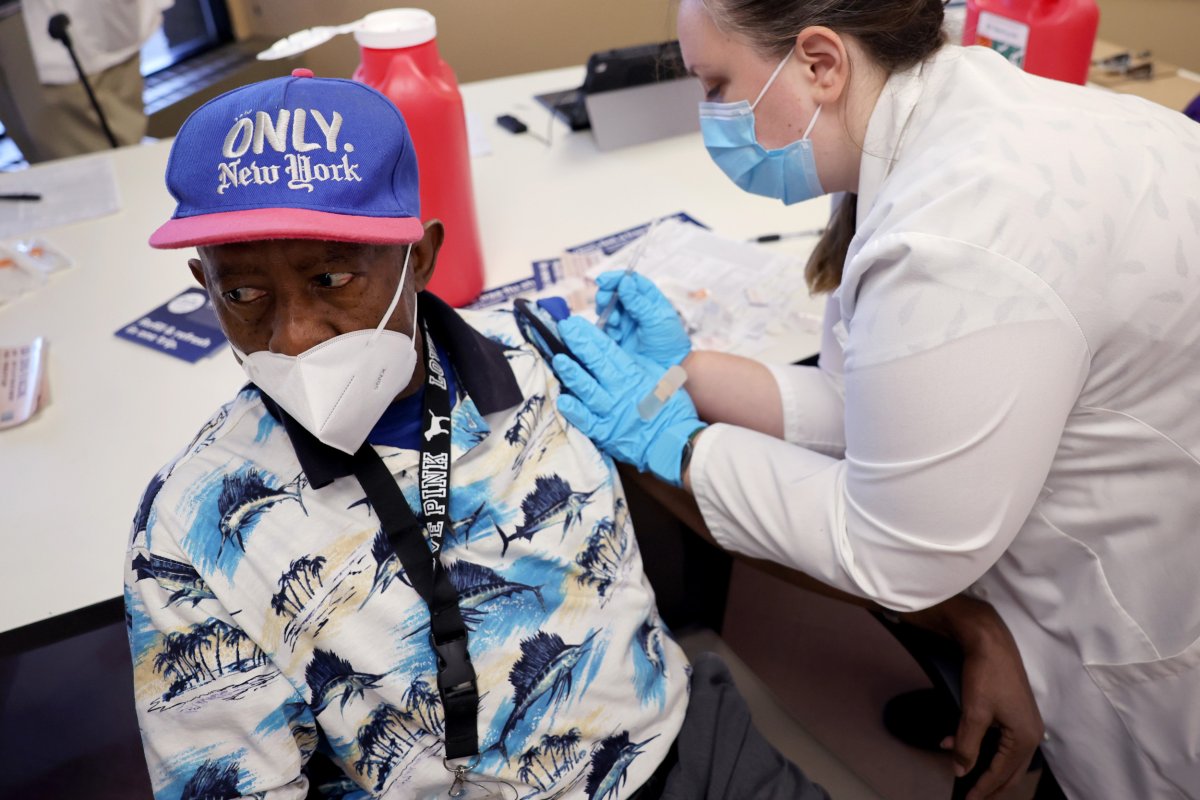As Americans head into their third full winter accompanied by COVID-19, the Biden administration continues to disappoint in its management of the pandemic. While many Americans live lives that closely resemble 2019, the failure to prioritize investment in new vaccines and treatments means that the situation remains both far worse than it could be, and deeply vulnerable to another variant that could upend the rickety apple cart of relative normalcy.
The most egregious oversight is inadequate funding and follow-through for "next-generation" vaccines like those delivered by a nasal spray, an intervention that could spare people not just hospitalization but also infections, which remain stubbornly high. That reality is still causing various kinds of social disruptions, like labor shortages, inadequately staffed classrooms, and chronic delays in air travel. The long-term burden on hospital systems is unknown, but the health care sector remains under increased pressure from the combination of COVID, what looks like a potentially very bad flu season, and an unexplained surge in respiratory illnesses, especially in children.
The current mRNA shots offer virtually miraculous protection against severe disease, hospitalization and death, but they have proven to be much less effective than initially hoped at blocking the virus from gaining a foothold in our bodies. A nasal vaccine would, in theory, offer much greater protection from COVID at the point of infection by producing immunity in airways. But that research simply is not being funded and backed with the kind of lavish, public-private partnerships that proved so successful in 2020.

Investments in a so-called 'pan-coronavirus' vaccine that could protect against any future variants have been similarly feeble, a failure that could have catastrophic consequences if another novel coronavirus emerges to wreak havoc. Neither strategy is guaranteed to work, of course, but the money we're talking about here is a miniscule fraction of the federal budget. The Trump administration's original $10 billion investment in Operation Warp Speed cost much less than a single new aircraft carrier. That seems like a small bet to place on potentially game-changing vaccines, especially if it funds research that could have applications for other infectious diseases.
The lack of political urgency is understandable in some ways. A trip to any bar, restaurant, concert venue or school will confirm that most Americans have resumed their pre-pandemic lives. Even in cities that once had the most restrictive mitigation measures, there is little sign from everyday behavior that most individuals regard the virus as a mortal threat. For most people who are up to date on their shots, that calculus is entirely correct. The ship on masking sailed long ago and will not be returning to port absent a Station Eleven-style apocalypse. But COVID is quietly extracting a staggering toll on the United States—roughly 300 deaths a day, a pace that would result in 110,000 victims a year nationally, basically three years' worth of seasonal flu deaths.
And who is doing all this dying? The hardest-hit today are places like rural Dodge County, Nebraska, where close to one person out of a total population of 36,000 is dying every day from Covid-19. To get a sense of how outlandish that figure is, the city of Chicago and all its 2.8 million people have generally been averaging less than a death per day since the initial, vertical-line Omicron wave dissipated in March 2021.
Just 55 percent of the population of Dodge is "fully vaccinated," whatever that means now that some people have gotten five shots. It's also clear that the at-risk population includes not just the willfully unvaccinated but also individuals who stopped at the primary two-shot series and are now much more vulnerable to serious disease and death than those who kept up with the boosters, especially the elderly.
This bifurcation of risk—one unacceptably high disease burden for the unvaccinated, under-vaccinated and severely immune-compromised, and a manageable one for everyone else—is not guaranteed to last forever. After all, it was just over a year ago that the Omicron variant emerged and put an end to rosy predictions about the pandemic's imminent conclusion. Regardless of whether a new threat emerges to menace the vaxxed and relaxed, the United States could dramatically lower deaths with next-generation vaccines even if the same pool of Fox-poisoned anti-vaxxers ignores them.
So, what's the hold-up? The funding standstill has many causes. Republicans in Congress accuse the Biden administration of improperly accounting for previous Covid budget allocations, and are holding up new investments indefinitely. The White House has been inexplicably reluctant to credit Trump's Operation Warp Speed with the swift development of the vaccines or even to emulate it and has allowed vaccine development to return to its plodding, pre-pandemic pace. And not to be outdone, the mRNA vaccine makers have gotten increasingly territorial with their intellectual property, making it hard for other scientists to build on their progress, a classic case of companies privatizing gains while socializing risk.
These failures are mystifying, especially for an administration that obviously believes vaccines are the only meaningful path out of the crisis. And so it is incumbent on the Biden administration to work with the lame duck Congress to allocate money for vaccine development before the McCarthy Republicans take over the House and prioritize Hunter Biden's laptop over people's lives.
David Faris is an Associate Professor of Political Science at Roosevelt University and the author of It's Time to Fight Dirty: How Democrats Can Build a Lasting Majority in American Politics. His writing has appeared in The Week, The Washington Post, The New Republic, Washington Monthly and more. You can find him on Twitter @davidmfaris.
The views expressed in this article are the writer's own.
Uncommon Knowledge
Newsweek is committed to challenging conventional wisdom and finding connections in the search for common ground.
Newsweek is committed to challenging conventional wisdom and finding connections in the search for common ground.
About the writer
To read how Newsweek uses AI as a newsroom tool, Click here.








